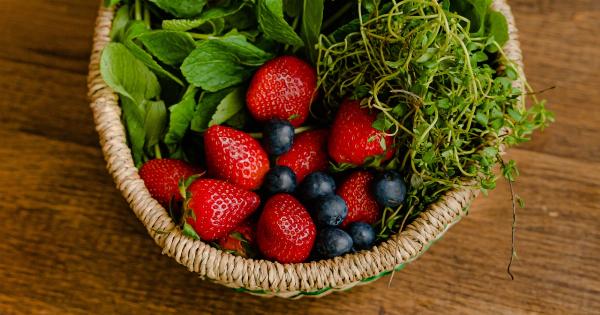Organic foods have gained immense popularity in recent years, with more and more people opting for them for a healthier lifestyle. Organic foods are grown using natural methods without the use of chemical fertilizers or pesticides.
Because of this, they offer a range of benefits to our health and the environment.
What are Organic Foods?
Organic foods are those that are grown without the use of synthetic substances like chemical pesticides, fertilizers, and genetically modified organisms (GMOs).
They are grown using natural fertilizers like compost and manure and natural pest control methods like crop rotation and the use of beneficial insects.
What Makes Organic Foods Healthier Than Conventional Foods?
There are several reasons why organic foods are healthier than traditional foods. For one, they contain fewer pesticides and other harmful chemicals. Pesticides are designed to kill insects, but they can also cause harm to humans.
Many pesticides are known to be carcinogenic, meaning they can cause cancer. They can also affect the nervous system and disrupt hormone balance.
In addition to being pesticide-free, organic foods also contain more nutrients than their non-organic counterparts. Studies have shown that organic fruits and vegetables contain higher levels of vitamins and minerals like vitamin C, iron, and magnesium.
The increased nutrient content is thought to be due to the fact that organic crops are grown in soil that is rich in nutrients and organic matter.
Are Organic Foods More Expensive?
One of the biggest complaints about organic foods is that they are often more expensive than conventional foods. This is true of some organic products, but not all.
In many cases, the price difference between organic and non-organic is small, especially when buying in-season produce.
Additionally, the long-term health benefits of choosing organic foods may outweigh the additional cost.
Consuming a diet high in pesticides and synthetic chemicals has been linked to a range of health problems, including cancer, neurological disorders, and reproductive issues.
Organic Foods and the Environment
In addition to being better for our health, organic foods are also better for the environment. The use of chemical pesticides and fertilizers has been linked to soil depletion, water pollution, and damage to local ecosystems.
Organic farming methods, on the other hand, promote biodiversity and healthy soil that is rich in nutrients.
Organic farming also promotes sustainability and reduces the carbon footprint of food production. Organic farms use fewer resources and produce less waste than conventional farms.
In addition, many organic farmers use renewable energy sources like solar and wind power.
What to Look For: Buying Organic Foods
If you’re interested in trying organic foods, there are a few things to keep in mind. Look for the USDA Organic label on products.
This label certifies that the product meets strict organic standards and is made without the use of synthetic chemicals.
Also, try to buy in-season produce to save money. In-season produce is often cheaper and fresher than out-of-season produce.
If you can’t find organic produce at your local grocery store, try shopping at a farmers’ market or joining a local CSA (Community Supported Agriculture) program.
Conclusion
Organic foods offer a range of benefits to our health and the environment. They are grown using natural methods without the use of synthetic chemicals, making them healthier for us and the planet.
While some organic products may be more expensive than conventional, the long-term health benefits are worth the investment.






























